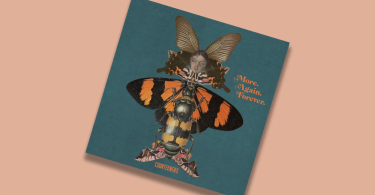It’s a lovely evening, the football is on and you’ve finished work.
It’s a lovely evening, the football is on and you’ve finished work. You enthusiastically stride into your local and inhale the familiar aroma of beer-stained carpets and empty optimism. Much to your dismay however, you do no hear the comforting tones of Martin Tyler and Gary Neville but instead the self-effacing mumbling of a nervous teenager introducing the next song by his band.
I suppose the point I’m trying to make is that there seems to be a new young band around every corner nowadays. This, coupled with the fact that there is very little cash in the music industry at the minute, makes it very difficult for record labels to justify signing up new bands when they can barely afford to feed the ones they already have.
This is where our knight in shining armour reveals himself in the form of our very own Conservative government (I gasped as loudly as you). They have set aside £2.5 million under the guise of ‘The Music Export Growth Scheme’ that will go towards small and medium sized record labels to help them “introduce successful UK music projects overseas”.
They can receive between £5,000 and £50,000 from a panel chaired by veteran XFM DJ John Kennedy which is supposed to go towards extending Britain’s musical imperialism overseas by paying for tours and whatnot.
State funded pot of gold to revitalise careers
For many in the music industry this state funded pot of gold could not have come at a more convenient time. The Department of Culture, Media and Sport last year announced a further 7 per cent in cuts. This is in addition to an abundance of other cuts already enforced by the coalition government as well as a massive 30 per cent cut in 2010.
In the current climate the music industry’s scarcity of funds means that unless an artist finds immediate success and consequently immediate revenue, they are put on the back burner by their record label where they are left to rot.
The scheme has already helped artists in such a predicament. For example, The Crookes and Slow Club, who have both prospered from the scheme, have managed to maintain a fairly modest level of success over the years and have already released a handful of records between them.
However, failure to break into the mainstream has prevented them receiving much funding from their record labels meaning they have been largely unable to stretch their legs outside of the UK.
While this seems all well and good, the criteria on which the grants are awarded seem to be contradictory and confused. On one hand the scheme appears to attempt to revitalise the careers of once promising but now slightly faded bands such as the aforementioned The Crookes and Slow Club.
On the other hand however, brand new artists such as gritty punk duo Drenge have also seen large amounts of the money.
Can we justify funding the arts?
The other major argument against such funding comes from those who can’t see the justification behind funding the arts when we have recently seen record highs in poverty and unemployment.
If the government’s motive is to generate more interest in British artists overseas in order to somehow stimulate our economy, then giving a small handful of bands a few grand to go on a tour that their record companies would have eventually bankrolled anyway seems rather futile.
There’s also the moral integrity of the band’s and record labels accepting the cash. Does accepting thousands of pounds from the government really leave them with a clean conscience when vital parts of the NHS are having to close under the Tory’s austerity measures? I think not.
Nonetheless I do empathise with those who agree that state subsidy of the arts is important. It’s quite obvious that the arts require greater funding but it’s at a level much lower than that of the handful of established artists that are seeing all the contents of the £2.5 million kitty.
The scheme is fundamentally flawed in that it hands a fortune to bands that have already made it in the music industry. Rather than trying to re-ignite the careers of bands that haven’t succeeded as well as their record companies would have liked, we should be looking to fund the futures of young musicians whose talent is yet to be fully explored because they previously haven’t had the money to do so.
What do you think of the scheme? Have your say in the comments below!
[Image: Slow Club live by Lara Janssen]








